World Class International Programs and Research at Cadi Ayyad University in Morocco
President of University of Cadi Ayyad, Dr. Mohamed Marzak
Webometrics ranks us among the best universities of North Africa and the Middle East. It is flattering, but it also encourages us to do our best for UCA to become more visible internationally.
Interview with Dr. Mohamed Marzak, President of University of Cadi Ayyad
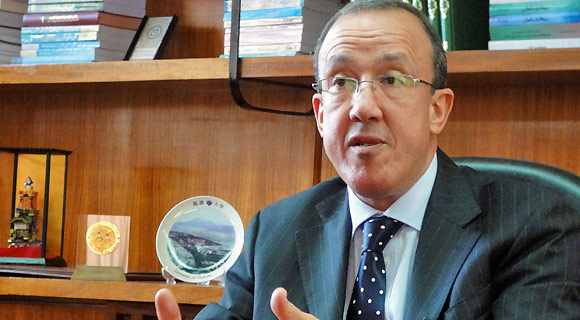
What are Morocco’s plans regarding education? What makes it unique?
The Maghreb is different to the Middle East in that its countries speak French. Algeria, Tunisia and Morocco are part of the Bologna system as well as the LMD system. Countries of the Middle East relate to the Anglo-Saxon system due to their historical ties with Anglo-Saxon countries. Morocco’s universities are state universities. The 1st private university has opened recently in Rabat (International University of Rabat). More are likely to open soon. Morocco’s challenge is to have enough university places for all of its high school graduates. The demand is high and state universities cannot keep up with the demand. Moreover, the opening of private universities will create competitiveness and therefore improve educational standards in other universities.
What are the advantages of the Moroccan educational system?
Moroccan universities are independent when it comes to pedagogy. They are not financially independent yet, but they have been independent in terms of methods and courses for 11 years and this has allowed them to adapt to regional economic climates as well as be innovative in terms of teaching methods. This is why Morocco was the first country of the Maghreb to join the Bologna system. There is a project for countries of the Maghreb that are part of the Bologna system to become part of a North African education network after a certain time.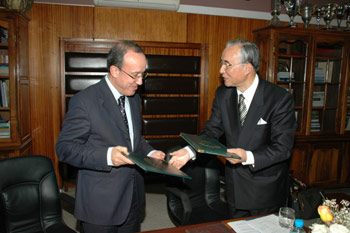
Presidents of universities in Morocco are selected by the Minister of National Education. Candidates submit a 4-years development project and are selected by experts accordingly.
Are Moroccan universities able to prepare their numerous students for the working world, and hence fight unemployment?
This is a very important question for universities. Measures have been taken during the past years in order to increase the students’ opportunities for employment. They have been reinforced by the government’s 2009-2012 emergency plan, which allocated an important budget to the question. These measures aim at adapting universities to each region’s specific economic and social needs.
For example, we have opened the universities to the working world by promoting internships for students and creating career-oriented courses in partnership with professionals. We have also put more emphasis on languages, ICT and entrepreneurship. .
Webometrics ranks us among the best universities of North Africa and the Middle East. It is flattering, but it also encourages us to do our best for UCA to become more visible internationally.
Besides, all modules and training courses conform to the national development plans, so that graduates may benefit from the opportunities created by the plans in question. With this view, we have trained 2000 engineers, 3300 doctors, and professionals in fields such as social work, offshoring, and sustainable development – always according to the existing governmental plans in these fields.
What challenges is UCA facing?
Our challenge is to conciliate economic and social demand. The economic challenge is to meet each region’s needs; the social challenge is to welcome the increasing number of successful high school graduates.
We need to work in synergy with local schools. We have created a regional commission for education with the Regional Academy of Marrakech and that of El Jadida. They have organized open days and forums in universities for high school students to discover what opportunities they have.
We are also working on improving educational standards within high schools, particularly by creating more technical courses to better prepare them for professional training. We have hired counselors to welcome them and advise them on which courses to follow given the labor market as well as their own skills. We have also made tutoring classes obligatory for first year students. 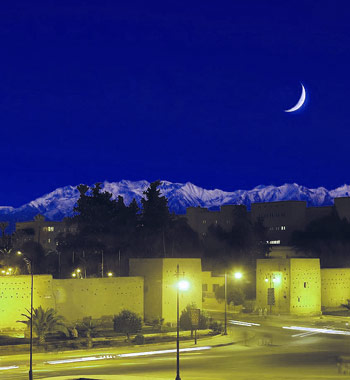
Another important challenge is for us to improve student life (art, music, theatre, etc.). A choir and a theater company are to be created this year, and we encourage all other universities to take similar steps. A few years ago, the Festival of International Music was created and it has allowed students to meet artists from Europe, South America and Asia.
This contributes to student life improvement as well as city improvement since the festival takes place in the city. We have created the Creativity Week and the Science Week during which we organize visits to the local observatory. We also organize sports tournaments.
Are you seeking international partnership with foreign universities/businesses/governments?
We aim for UCA to become a world-class university. Webometrics ranks us among the best universities of North Africa and the Middle East. It is flattering, but it also encourages us to do our best for UCA to become more visible internationally.
International recognition is based on internationally-oriented courses. This can be achieved thanks to international partnerships. It would also allow our students to do part of their studies abroad, which would increase their international opportunities and make them open up to other cultures. International recognition also implies the recognition of our research laboratories.
UCA does benefit from internationally recognized laboratories. Our researchers are often published in foreign magazines and they often take part in joint thesis supervisions. UCA is very much involved with international networks for research and training such as Tempus and Erasmus. 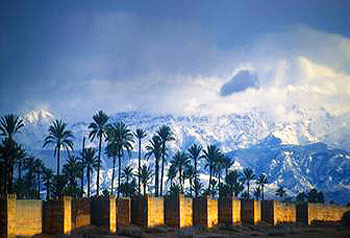
The research sector is very lively in Morocco. Our labs are part of national research programmes: 25.5% of the research made on behalf of the National Center for Research in Rabat comes from Marrakech. We want to license our laboratories for international recognition, and diversify our collaboration with foreign universities.
We have signed contracts with Japanese universities and have students completing their PhD there. Our researchers go there for conferences. We are discussing with universities in Latin America, Spain, the US, Canada and Indonesia. We also want to collaborate with organizations such as the World Bank and GrInsA in Bologna.
They will help us setting up a follow-up system for our graduates. The GrInsA programme will allow the universities of Marrakech, Meknes and Oujda to create a database of our graduates’ resumes open to national as well as international enterprises. The resumes will be updated yearly. As part of the GrInsA programme we will also have access to a database of Moroccan and foreign businesses wishing to recruit Moroccans. The process has already started and will be completed within 18 months. 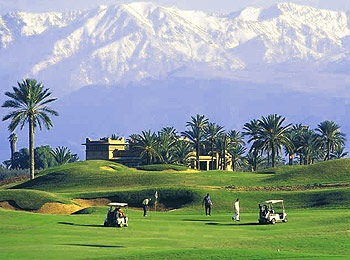
What is your most important achievement?
We are the first Moroccan university to have been certified ISO 9001 (2008) by Veritas thanks to the quality of our management system. It hasn’t been easy, especially for a state university. We have established transparency and better communication, which has motivated our administration staff. It has transformed the university completely, and I hope it will continue to change it for the better.
What is your vision for the future?
Our past achievements have made us confident regarding the future. We aim for our university to become a world-class university that will attract not only the best students but also the best administration staff.
We want state-of-the-art research and innovation, and world recognition. We also want the university to have an impact on the region of Marrakech as we feel that we have a responsibility towards our region.
What do you expect from foreign investors? In which sectors should they invest?
We have a project to create a technology park called the “City of Innovation”. The feasibility survey has just been completed. We are working under the patronage and in partnership with the Ministry of Industry and New Technologies.
Local councilors, national businesses and international businesses are to take part in the project. The park will host the university’s network of researchers, as enterprises lack researchers considerably, and have a lot to gain from our highly qualified researchers. Research will focus particularly 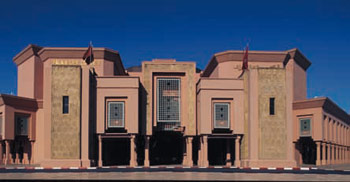 on water, environment and renewable energies, tourism, food industry and materials.
on water, environment and renewable energies, tourism, food industry and materials.
Businesses are also invited to take part in the creation of more university campuses and more museums. Our university is the only Moroccan university to have a museum. It is dedicated to science. These sectors are linked to universities without being actual part of the academic system.
But the first sector enterprises should invest in is definitely research. Their participation is crucial for the research sector to grow successfully.
{jcomments off}